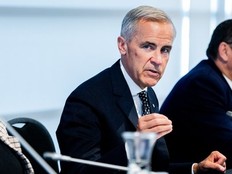LILLEY: What crisis? Parliament returns this week, but not for long
If we are in a crisis, why is the House only sitting for a short period before they leave Ottawa again?

Article content
When the House of Commons resumes on Monday, it will have been 161 days since MPs met in the Chamber. That’s five months and 10 days without our Parliament sitting at a time when we are told we face a crisis, an existential threat to our future.
They will sit at most for 20 days before leaving Ottawa for the summer recess which is scheduled to last until Sept. 15.
“This is one of the most consequential elections in my lifetime,” Prime Minister Mark Carney said more than once on the campaign trail.
You might think that after a consequential election, we might have Parliament return quickly and sit for a significant period of time before shutting down for the summer. That won’t be the case with Canada’s new Parliament, which makes it seem that Carney dislikes dealing with Parliament as much as his predecessor Justin Trudeau did.
Recommended video
Who needs the pesky representatives, the people elected and sent to Ottawa, to act as their voice by voters, when you can just govern by fiat.
We’ve already seen Carney imitate Donald Trump more than once with his fake executive order signing ceremonies. He signed a fake document with no legal authority to reduce the consumer carbon tax rate to zero just before the election, then we saw him sign a similar fake document with no legal authority to order his ministers to pass a middle-class tax cut.
In Canada, Prime Ministers don’t sign orders to raise or lower taxes, that takes Parliament. It requires a bill to originate in the House of Commons — the place that hasn’t met in more than five months — to pass a bill with the support of the majority of MPs.
It’s not done with the signature of a PM performing in front of a compliant gathering of media folks in Ottawa.
Carney has promised such a bill will be presented in this shortened session of the House, what he won’t do until sometime in the fall is present a budget.
Budget planning is a process that can take months, it can also be done in short order. Deciding not to present a budget this spring is a choice — a deliberate choice by the new government.
There are some valid reasons for the delay that Carney himself laid out after having to clean up from the mess left by Finance Minister François-Philippe Champagne who had announced there wouldn’t be a budget presented at all in 2025. All that PM Carney has committed to is a budget this fall which means it will be presented between 17 and 20 months after the last budget of April 16, 2024.
Again, this is the most consequential election? We are in a crisis? This is a hinge moment for Canada, an existential threat to the future of the country?
If any of these claims made during the campaign were true, we’d have a budget before September or October and Parliament would be sitting into the summer. Instead, just like Carney’s “elbows up” claims, it was all rhetoric to scare voters into backing the Liberals during the election.
On Monday, the House will resume and elect a new speaker. On Tuesday, King Charles will read the speech from the throne outlining the government’s priorities.
We’ve heard enough over the top claims, promises and soothing words during the campaign and since. Perhaps after Tuesday, we can start seeing action from this Carney government to see what they are all about, because one thing is clear, the words they say don’t mean much.













Postmedia is committed to maintaining a lively but civil forum for discussion. Please keep comments relevant and respectful. Comments may take up to an hour to appear on the site. You will receive an email if there is a reply to your comment, an update to a thread you follow or if a user you follow comments. Visit our Community Guidelines for more information.